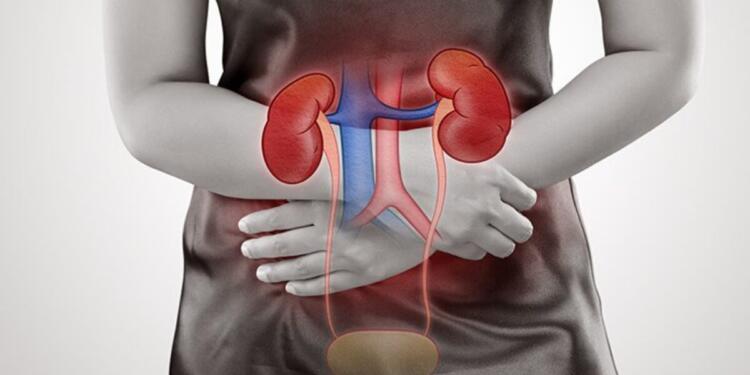The kidneys, two bean-shaped organs located below the rib cage on either side of the spine, are indispensable for maintaining overall health. These vital organs play a multifaceted role in the body, primarily tasked with filtering waste products, excess fluids, and toxins from the blood, which are then excreted through urine. Additionally, they regulate electrolyte levels, produce hormones essential for red blood cell production and blood pressure regulation, and help maintain a stable internal environment conducive to optimal bodily function.
Chronic Kidney Disease: An Overview
Chronic kidney disease (CKD) represents a progressive deterioration of kidney function over time. Often asymptomatic in its early stages, CKD can silently advance until kidney damage becomes significant enough to cause symptoms or complications.
The Prevalence of CKD
Globally, CKD is a prevalent health concern, affecting approximately one in ten individuals. In India, where the burden of non-communicable diseases is on the rise, the prevalence of CKD ranges from 3% to 17%, with diabetes and hypertension emerging as leading causes. The surge in CKD cases underscores the urgent need for proactive measures to address risk factors and promote kidney health awareness.
Recognizing Symptoms
As CKD advances, symptoms may gradually manifest, indicating declining kidney function. These symptoms include fatigue, swelling (particularly in the ankles and feet), decreased appetite, muscle cramps, urinary changes, and headaches. Unfortunately, these signs often appear in later stages, emphasizing the importance of routine health screenings, especially for individuals with risk factors such as diabetes, hypertension, or a family history of kidney disease.
Common Causes of Failure
Various factors can contribute to the development of CKD, with diabetes and hypertension accounting for a significant portion of cases. Other underlying causes include glomerulonephritis (inflammation of the kidney’s filtering units), inherited conditions such as polycystic kidney disease, congenital abnormalities, autoimmune disorders, and certain medications. Understanding these risk factors can aid in early detection and targeted management strategies.
Complications of Untreated Kidney Problems
Left untreated, CKD can lead to serious complications that affect overall health and quality of life. Impaired kidney function disrupts the body’s ability to maintain proper fluid and electrolyte balance, leading to conditions such as hyperkalemia (elevated potassium levels) and metabolic acidosis. Furthermore, CKD increases the risk of cardiovascular disease, anemia, bone disorders, and neurological complications.
Treatment Options
While there is no cure for CKD, prompt intervention can help manage symptoms, slow disease progression, and improve outcomes. Treatment modalities for advanced CKD typically involve dialysis or kidney transplantation, both of which aim to replace lost kidney function and restore metabolic balance.
Dialysis: A Lifeline
Dialysis serves as a vital therapy for individuals with end-stage kidney disease, effectively removing waste products and excess fluids from the blood. Hemodialysis, the most common form of dialysis, involves filtering blood through a machine, while peritoneal dialysis uses the body’s peritoneal membrane as a filter. Although dialysis is lifesaving, it necessitates regular sessions, often several times a week, to maintain adequate waste removal and fluid balance.
Transplant: A Long-term Solution
For eligible candidates, kidney transplantation offers the best chance for long-term survival and improved quality of life. During a transplant, a healthy kidney from a living or deceased donor is surgically implanted, restoring normal kidney function. While transplantation provides significant benefits, including freedom from dialysis and enhanced dietary flexibility, it requires lifelong immunosuppressive medication to prevent organ rejection and necessitates careful monitoring to detect and manage potential complications.
Life After Transplantation
Following a successful kidney transplant, patients experience a dramatic improvement in their overall health and well-being. With proper care and adherence to medication, diet, and lifestyle recommendations, most transplant recipients can lead active, fulfilling lives. However, close medical supervision is essential to monitor graft function, manage medication side effects, and address any emerging health concerns promptly.
Seeking Medical Assistance
Given the critical role of kidneys in maintaining health, individuals experiencing symptoms suggestive of kidney disease should seek prompt medical evaluation. Nephrologists and urologists specialize in diagnosing and managing kidney-related conditions, offering comprehensive care tailored to individual needs. Early intervention not only helps slow disease progression but also improves the likelihood of favorable treatment outcomes and enhanced quality of life.
In conclusion, kidney health is paramount for overall well-being, and proactive measures to prevent, detect, and manage kidney disease are essential. By raising awareness, promoting healthy lifestyles, and ensuring timely access to specialized care, we can collectively combat the growing burden of CKD and safeguard the health of future generations.




























